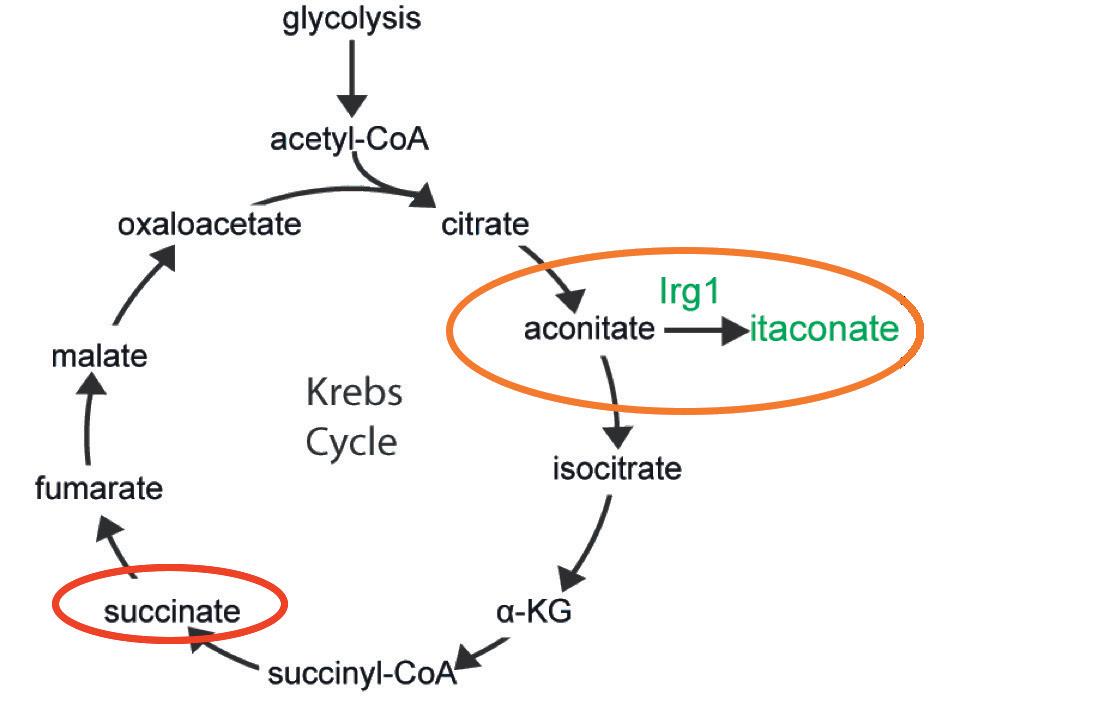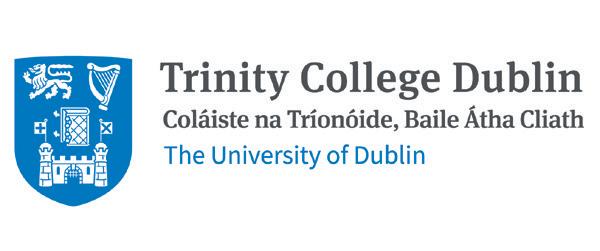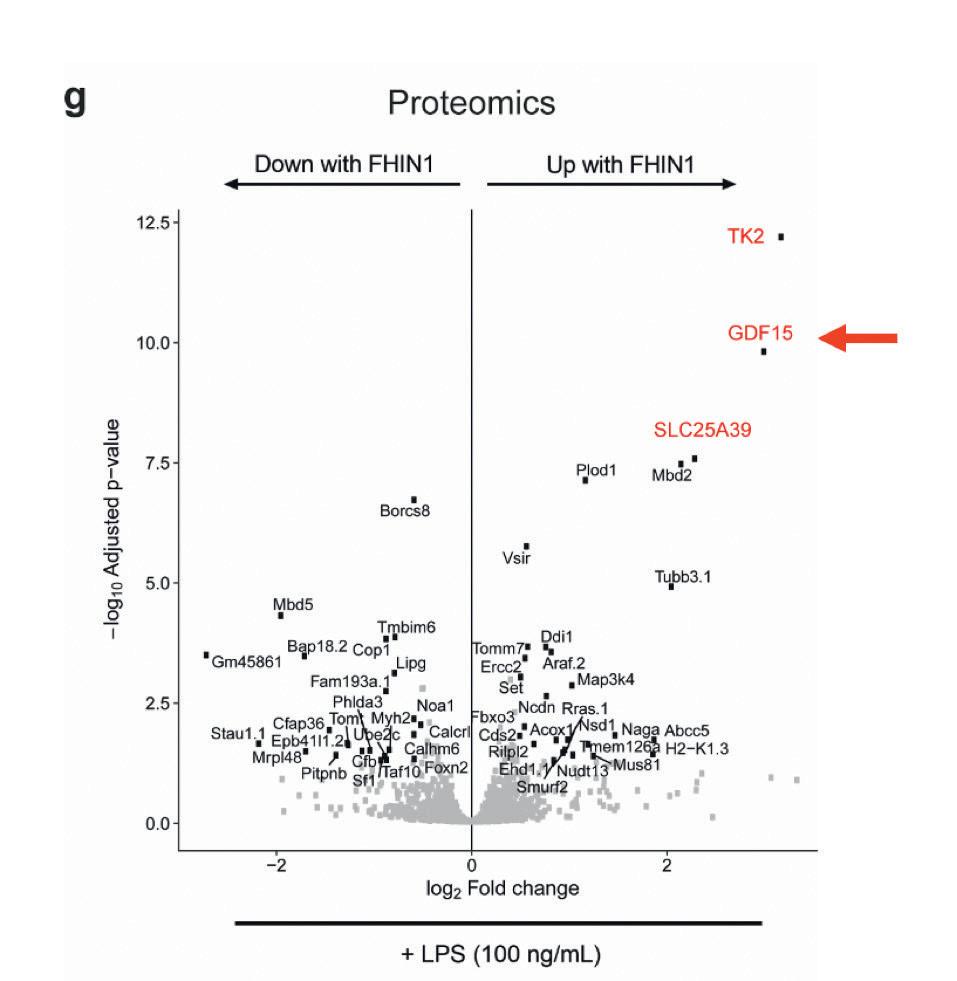Probing the role of metabolites in the immune system
Metabolites play an important role in the immune response, beyond their function in making and breaking down molecules. Researchers in the Metabinnate project aim to shed new light on the role of several different metabolites in the immune system, work which could hold important implications for the treatment of inflammatory diseases, as Professor Luke O’Neill explains.
Metabolism can be broadly thought of as the way in which biological systems make and break down molecules for certain purposes, for example nutrition and in constructing the complex biological chemicals that make up living systems. Beyond these functions, evidence suggests that metabolites are also involved in the immune response. “Around twelve years ago immunologists started noticing some very interesting metabolic changes in macrophages, a type of white blood cell,” outlines Professor Luke O’Neill, Chair of Biochemistry at Trinity College Dublin. This suggested that metabolites were involved in certain processes outside their established functions, a topic Professor O’Neill is exploring as Principal Investigator of the ERCfunded Metabinnate project. “We’re working on Krebs cycle, which is the central hub of our metabolism,” he explains. “We’ve mapped the role of Krebs cycle metabolites in some very interesting downstream processes for macrophage function.”
Inflammatory diseases
These macrophages are part of the front line of the immune system, responding quickly when activated to fight an infection or repair a tissue injury. Macrophages also drive inflammation, which can cause longerterm problems if it persists after an infection has been cleared, a topic of great interest to Professor O’Neill and his colleagues. “We’ve worked on the inflammatory process for a long time. We’re interested in inflammatory diseases, such as rheumatoid arthritis, psoriasis and inflammatory bowel disease,” he says. These diseases all involve macrophages essentially going out of control, leading to chronic inflammation, which causes tissue damage. “The symptoms of these inflammatory diseases that we see are down to macrophages - and other parts of the immune system - attacking our own tissues,” continues Professor O’Neill. “In previous work in my lab we identified certain metabolites as being very interesting in terms of their role in regulating inflammation. We wanted to find out more about them and figure out what they do.”

Krebs Cycle lies at the heart of metabolism but two of its intermediates, succinate and itaconte have been shown to have roles in immunity and inflammation. Succinate is pro-inflammatory and itaconate is anti-inflammatory, opening up possibilities for new antiinflammatory therapeutics.

The initial plan was to look at the role of three specific metabolites in the project, namely malonyl-CoA, 2-hydroxyglutarate (2-HG) and itaconate. There is scope to explore other avenues in ERC-funded projects however, and researchers have also made some interesting discoveries about another metabolite called fumarate. “We’ve got a big focus on fumarate at the moment,” says Professor O’Neill. These different metabolites
A variety of different techniques are being applied in the project to work out what these metabolites do once they have accumulated, with researchers seeking independent lines of evidence to reinforce their findings. Metabolomics screenings are expensive, so are used sparingly, with Professor O’Neill applying other methods to gain deeper insights. “We use Polymerase Chain Reaction (PCR) analysers as a way to
Metabolite levels
This process of macrophage activation affects metabolite levels, which then have wider effects. Two of the metabolites of interest in the project ( 2-HG and malonyl-CoA) are known to have a pro-inflammatory effect, while itaconate is very anti-inflammatory, and the ratios between these metabolites can be very important. “If the ratio swings in a particular direction, that might lead to an inflammatory outcome. While if it’s the other way, it could be anti-inflammatory,” outlines Professor O’Neill. The wider goal in this work is to develop effective new treatments for disease, and Professor O’Neill is confident that research into the metabolism of the immune system (a field called immunometabolism) can lead to new medicines. “I co-founded a company in 2018 called Sitryx which is based in Oxford. They’re building on our research in Dublin and developing new medicines from itaconate in various ways,” he says. “There’s a huge unmet medical need in the treatment of inflammatory diseases.”
There are treatments available for inflammatory diseases but not every patient responds as hoped, so it’s important to develop new, more effective medicines. This rests on further immunometabolism research and deeper insights into the regulation of immune responses, and the project is making an important contribution in this respect.
“We are working on macrophages, which are a key cell type in inflammation, and we’re discovering fundamental processes that seem to go wrong,” says Professor O’Neill. Chronic inflammation is involved in a number of different conditions, reinforcing the wider relevance of this research. “Inflammatory diseases mainly differ in the tissue that’s being attacked – macrophages are involved in them all. With some people macrophages may get irritated in the gut, or in the skin in the case of psoriasis, or in the brain,” outlines Professor O’Neill. “Parkinson’s disease and Alzheimer’s.disease are both inflammatory as well for example, so new insights could lead to therapies against many different diseases.” The project itself is working on the fundamental level, but Professor O’Neill and his colleagues ultimately aim to help companies develop improved therapeutics. The immunometabolism field is a fairly new area of research, but it’s grown quickly and thousands of labs across the world are now working on different immune cells, sharing knowledge and spurring progress. “If we see something interesting in our system that might lead another lab to re-examine their own, and vice-versa. For example, people have built on our work in itaconate but in the brain,” says Professor O’Neill. “We’re hoping our work will hold broader relevance and apply beyond a particular property.”
MetabINNate
Metabolic crosstalk in the regulation of inflammation
Project Objectives
The Metabinnate project is investigating the role of certain metabolites in regulating the immune response, which represents an important contribution to the growing field of immunometabolism research. This work could help researchers develop effective new treatments against a wide variety of inflammatory diseases.
Project Funding
This project has received funding from the European Union’s Horizon 2020 research and innovation programme under grant agreement No 834370.


Contact Details
Project Coordinator, Professor Luke O’Neill Chair of Biochemistry(1960), Biochemistry Trinity College Dublin College Green, Dublin 2 t: +353 1896 2439 e: luke.oneill@tcd.ie W: https://www.tcd.ie/Biochemistry/ people/laoneill/


Runtsch MC, Angiari S, Hooftman A, Wadhwa R, Zhang Y, Zheng Y, Spina JS, Ruzek MC, Argiriadi MA, McGettrick AF, Mendez RS, Zotta A, Peace CG, Walsh A, Chirillo R, Hams E, Fallon PG, Jayamaran R, Dua K, Brown AC, Kim RY, Horvat JC, Hansbro PM, Wang C,O’Neill LAJ.Itaconate and itaconate derivatives target JAK1 to suppress alternative activation of macrophages.Cell Metab. 2022 Mar 1;34(3):487-501.e8. doi: 10.1016/j.cmet.2022.02.002.
Hooftman A,O’Neill LAJ.Nanoparticle asymmetry shapes an immune response.Nature. 2022 Jan;601(7893):323325. doi: 10.1038/d41586-021-03806-7.
Hooftman, A, Peace C, Ryan DG, Day E, Yang M, McGettrick A, Yin M, Montano E, Huo L, Toller-Kawahisa J, Zecchini V, Ryan TAJ, Bolado-Carrancio A, Casey AM, Prag HA, Costa AS, De Los Santo G, Ishimori M, Walace DJ, Venuturupalli S, Nikitopoulou E, Frizzell N, Johansson C, Von Kriegsheim A, Murphy MP, Jefferies C, Frezza C and O’Neill LAJTargeting fumarate hydratase promotes mitochondrial RNAmedicated interferon production. Nature(2023) 615, 490498 doi: 10.1038/s41586-023-05720-6.

were first identified through a metabolomic screen. “We saw that certain metabolites were essentially accumulating during the activation of macrophages. We homed in on those metabolites - our inference was that they were accumulating for a reason, and then affecting things further downstream,” explains Professor O’Neill. “We’re looking at the individual metabolites which go up following macrophage activation, and are trying to figure out how and why they accumulate. The major example is itaconate, which can feed back on the Krebs cycle and allow another metabolite called succinate to accumulate.”
measure mRNA very accurately for example, as well as a range of standard assays and certain microscopy techniques to look at macrophages and see how they change,” he says. In their resting state macrophages are pretty inactive and essentially mind their own business, but they spring into action in response to a tissue injury or the presence of a bacterial cell. “When macrophages are activated they essentially wake up and start to make cytokines, which are signalling molecules. Those cytokines affect many cells in the body and effectively bring them to the party,” continues Professor O’Neill.
A proteomic analysis of macrophages in which fumarate hydratase is blocked revealed fascinating changes in protein levels, notably in the protein GDF-15, which regulates food intake but also is anti-inflammatory. Work in progress is exploring this process further.
Luke O’Neill is Professor of Biochemistry in the School of Biochemistry and Immunology, Trinity Biomedical Sciences Institute at Trinity College Dublin, Ireland. His main research interests include Toll-like receptors, Inflammasomes and Immunometabolism. He is the co-founder of Sitryx, which aims to develop new medicines for inflammatory diseases.

We’ve worked on the inflammatory process for a long time. We’re interested in inflammatory diseases, such as rheumatoid arthritis, psoriasis and inflammatory bowel disease.Professor Luke O’Neill
